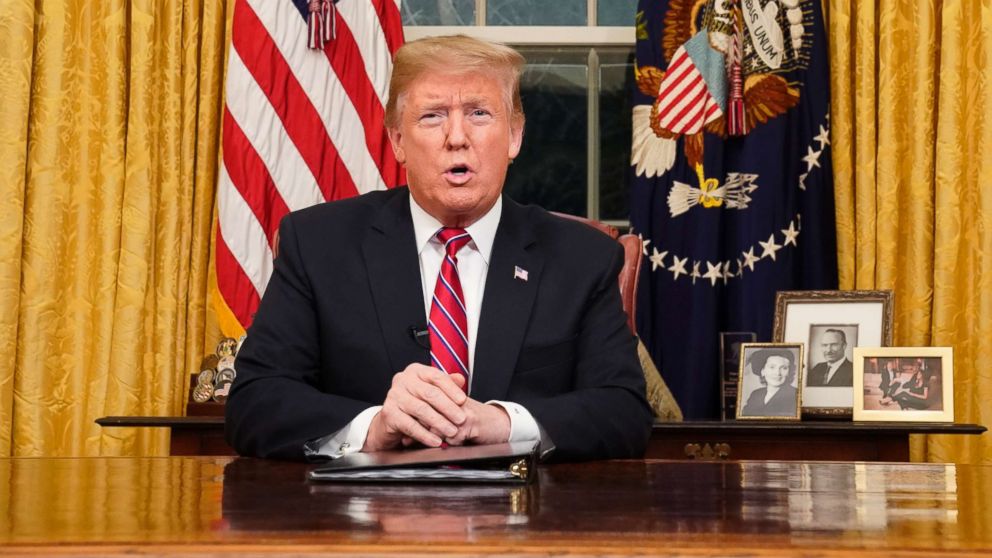President Trump wants to declare a national emergency over the border. Can he do that?
The White House has directed the Army Corps of Engineers to find money is its own budget that could be used to fund the president’s desired border wall under a national emergency declaration, multiple sources familiar with the matter told ABC News.
Earlier in the day, Trump said it would be “very surprising” for him not to declare a national emergency if he can’t make a deal with Democrats to pay for his promised border wall along the border of U.S. and Mexico.
“We have to get a win ... or I will declare a national emergency,” he said to reporters before departing for McAllen, Texas.
Under statutes in the National Emergencies Act of 1976, the president has the authority to declare a national emergency that allows him to expand his executive power.
What constitutes a National Emergency?
The statutes do not provide any explicit criteria for what type of circumstances qualify as a “national emergency,” so discretion rests solely with the president.
According to the Federal Register, 58 national emergencies have been declared since 1976 with 31 still in effect. Some continue export control regulations, enforce economic sanctions or address human rights abuses. President George W. Bush declared a national emergency three days after 9/11 that has been extended annually, including by Trump.
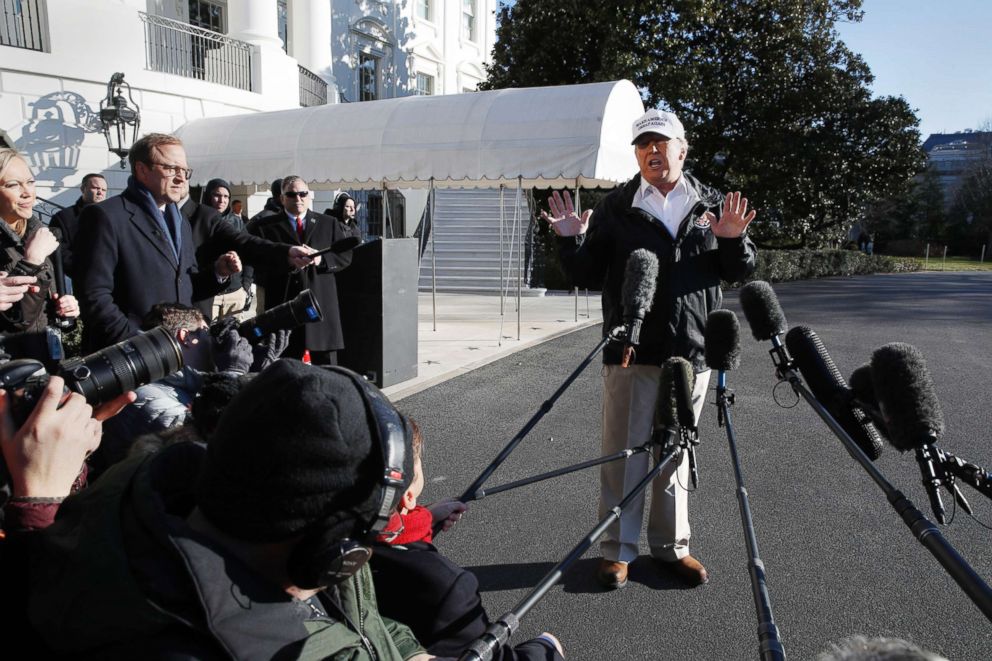
How does declaring a national emergency build and pay for the wall?
By declaring a national emergency, the president could cite several different aspects of U.S. Code that he believes give him the authorization to build a wall.
Trump could trigger part of Title 10 U.S. Code which states that under such circumstances the Department of Defense "may undertake military construction projects ... not otherwise authorized by law that are necessary to support such use of the armed forces." It also explains that "such projects may be undertaken only within the total amount of funds that have been appropriated for military construction, including funds appropriated for family housing, that have not been obligated."
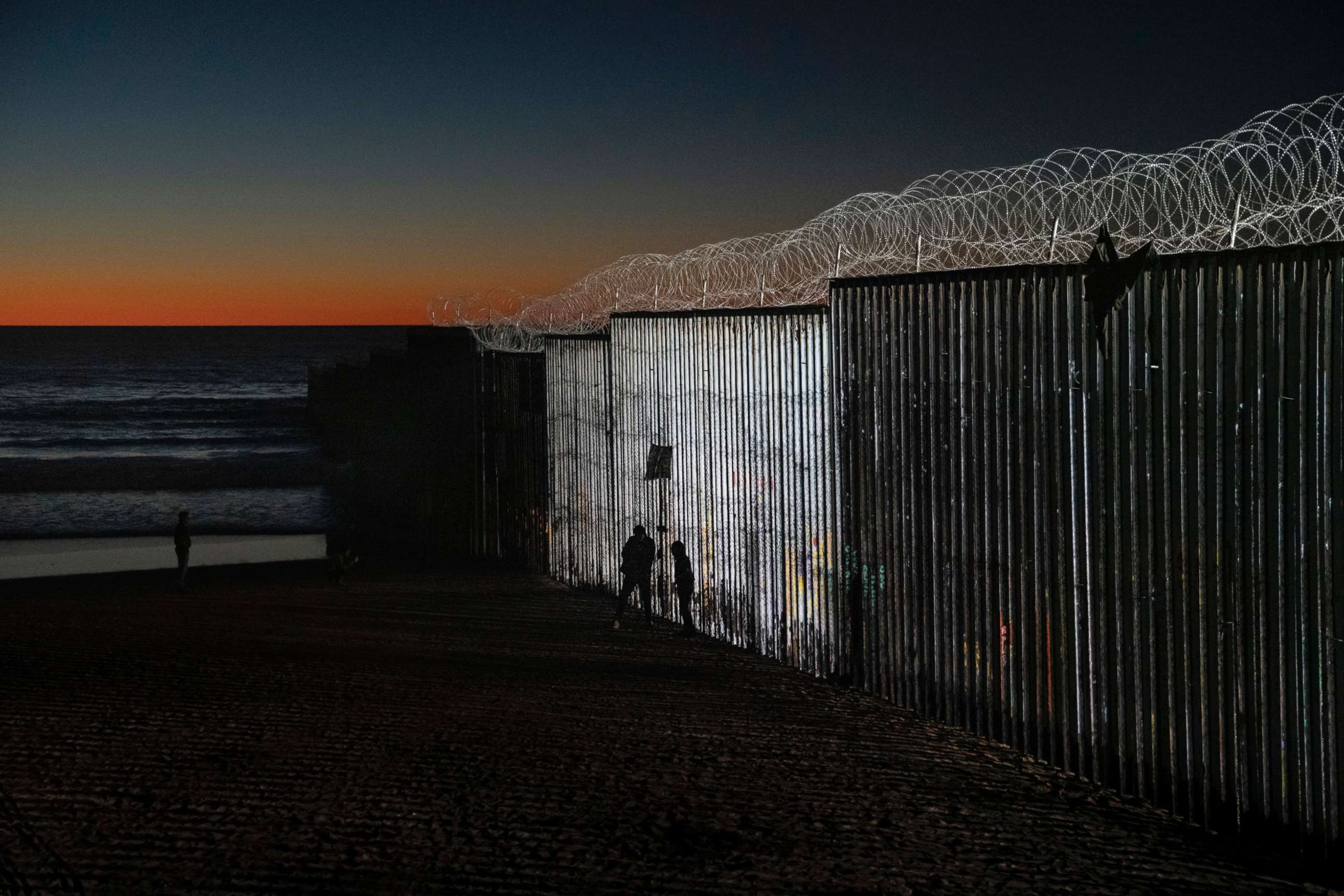
Congressional aides have estimated that there are currently about $13 billion in unobligated funds for military construction and family housing, but $11 billion is already pegged to planned projects -- meaning only $2 billion could be reprogrammed.
At least one Republican congressional aide told ABC News that estimate could be higher, but the Department of Defense has not officially released the amount of unobligated funds it estimates could be used in the event that Title 10 is triggered.
Title 33 allows for the Department of Defense to “apply the resources of the Department of the Army’s civil works program, including funds, personnel, and equipment, to construct or assist in the construction, operation, maintenance, and repair of authorized civil works, military construction, and civil defense projects that are essential to the national defense.”
Trump could also use another section of Title 10 that supports counterdrug activities to justify the use of a National Emergency. Section 284 authorizes the secretary of defense to “provide support for the counterdrug activities or activities to counter transnational organized crime” and “construction of roads and fences and installation of lighting to block drug smuggling corridors across international boundaries of the United States.”
For any new border wall that would need to be built on existing farmland, Trump could cite a section of Title 7 that states “legal provisions intended to protect farmland do not apply to the acquisition or use of farmland for national defense purposes during a national emergency.”
And Title 42 gives him authority to displace landowners since the “provision that persons displaced by a federal project may not be required to leave their dwelling unless they have had a reasonable opportunity to relocate to a comparable replacement dwelling does not apply in the case of a national emergency declared by the president.”
Can Trump declare an emergency to build the wall?
Whether the president could succeed in using a declaration of a national emergency to fund his wall is hotly debated among legal experts.
“The president can basically declare an emergency anytime he wants,” Josh Blackman, a Constitutional law scholar at South Texas College of Law, told ABC News. “Congress has not limited the president’s discretion under the National Emergencies Act,” echoed Harold Krent, dean of the Chicago-Kent College of Law.
Brookings Institution Senior Fellow William Galston anticipates several other avenues of legal pushback should the president declare a national emergency.
“The landowners whose property was seized to build a wall would have suffered a concrete injury that would entitle them to go to court,” Galston said, referring to the controversial government power known as eminent domain. “They could argue the president has not made the case that there’s a national emergency.”
Trump could also be challenged in court, under somewhat strained legal theories. For example, those who would have benefited from funds that were redirected to the wall could arguably have standing to sue over the funding switch, said Krent.
It is also possible that families currently in the U.S. might be able to sue on the ground that loved ones would otherwise have been able to come and make their case for asylum, but that argument would be stretch.
In summary, to build his wall through emergency powers, Trump would have to “thread the needle and do this in a very specific way,” said Blackman.
What kind of congressional pushback could the administration face?
The Act allows Congress to cancel the declared emergency by a resolution passed by both houses, but even then that decision can be vetoed by the president. Congress has never voted to revoke a declared national emergency.
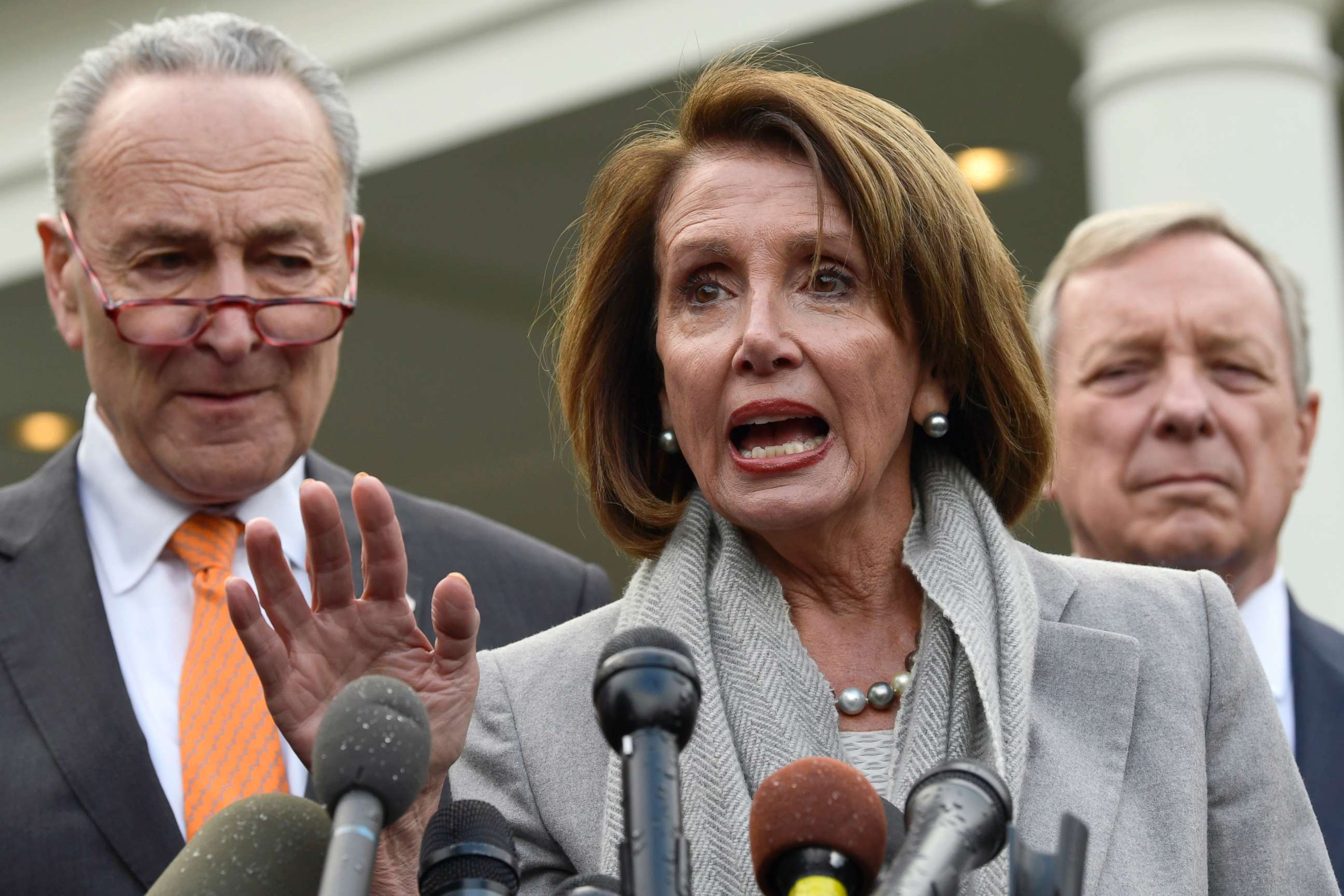
Some Democrats doubt whether Trump can legally redirect any of this money for the border wall because Congress codified restrictions on the types of barriers money can be used for and has not appropriated anything to be used explicitly for the construction of a wall on the southern border.
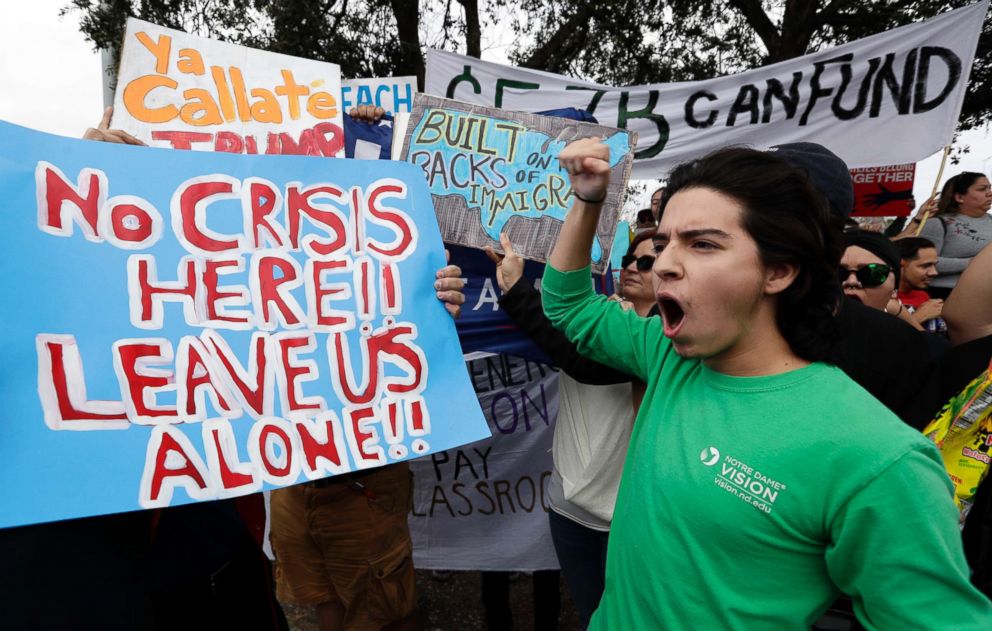
The timing of the emergency could also be called into question.
“The security conditions as they’re currently being described by the administration didn’t occur overnight -- they’ve talked about these conditions for weeks and months. If it was an emergency several weeks ago, why wasn’t the declaration made at that time?” asks John Cohen, a former acting assistant secretary at DHS and ABC News Contributor. “It raises questions about whether this is an actual emergency or a political strategy based on a disagreement over appropriations.”
